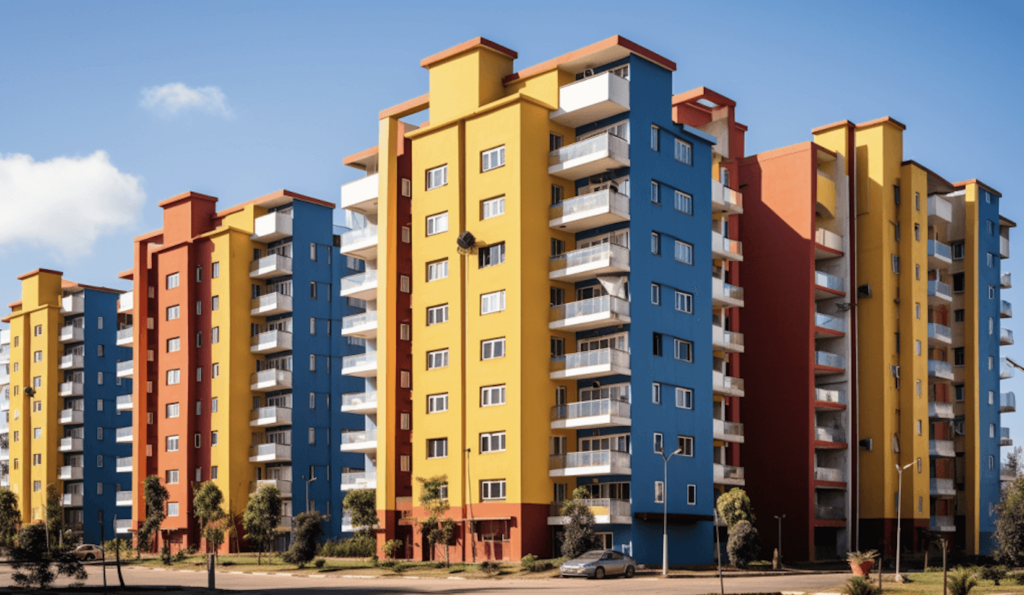Investments are often concentrated among assets, products and services with a steady flow of income and a good return on investment. Major developers and players in real estate have often centralized their efforts among middle and high-income households. And, with the government taking a back seat in the past, the demand for housing among the masses is currently high.
Spurred by former President Uhuru Kenyatta, the current administration has embarked on an ambitious journey to provide affordable housing options in the country. Actualizing the plan will be an uphill task given the current total deficit which is stated at approximately 2 million units and the number of formal dwellings delivered annually by both public and private players, which is estimated at 50,000 units against a demand of 250,000 units.
With published reports revealing that 80% of the country’s population is below the age of 35 years, and in dire need of affordable housing, it comes as no surprise that market players are rushing to fill the gap.
The growth in Nairobi’s population has led to the establishment of residential nodes in the suburbs on the outskirts of Nairobi City County and in the neighbouring counties, particularly Kajiado, Kiambu, and Machakos Counties.
Gone are the days when Nairobi was the only business hub – and viable source of livelihood. Locals are changing the narrative of making daily commutes to the heart of the city and offering their services or products thanks to semi-autonomous residential hubs.
As per the laws of economics, the market threshold (in new residential nodes) is always big, and allows service providers to operate within these markets and operate at a profit.
The assimilation of the work-from-home mode of operation is another interesting trend – Covid-19 pandemic was the catalyst, with more companies now considering the working arrangement. It was also a viable option for multinational corporations (MNCs) looking to penetrate into the local market without operating a physical office.
Away from the hustle and bustle of the city, young professionals, entrepreneurs, and business people are able to rent space in quieter and peaceful suburbs. As the laws of economics would dictate, the cost of living (which is a significant discussion these days) would be significantly lower.
Pertinent variables
The dynamics surrounding real estate are multi-disciplinary and are often complex as has been viewed by numerous debates between different players in the recent past. However, at its simplest level, the simple factors of demand and supply have to be analyzed.
Nairobi boasts very few ‘natives’. Current residents are 2nd generation ‘Nairobians’ with 5+ (plus) siblings as cited by reports and publications by the Kenya National Bureau of Statistics. Affordability of essential commodities, large holdings, and a ‘more’ traditional culture encouraged large families. The status quo has changed in both urban and rural setups.
A 2022 study estimates the fertility rate at 3.4 children per woman from 8.1 in the late 1980s. Various factors are at play, contributing to this statistic. Furthermore, western economics and demographic trends have already set a precedent with very low births per woman. The ‘unit’ demand side of the ‘real estate product’ is a family/household of three to five members.
There is also the issue of income levels. Global inflation has been a matter of concern for governments worldwide as the purchasing power of households has been cut down. At a local level, the cost of foodstuffs, transportation, and other essential items have been on the rise in contrast to a stagnation of income. Lower and middle-income households tend to feel the inflationary impact more since they spend a larger percentage of their income on basic necessities.
Serviced land
Land is a scarce resource due to its fixity in supply – serviced land, i.e. in close proximity to infrastructure, utilities, and amenities, is even in scarcer supply which in the long run, impacts its price point. The highest and best use of the land would demand a more prudent and intensive use to maximize productivity and bring a return.
With rapid urbanization and a growing population forecasted for our country, an opportunity presents itself for prudent investors. There are support players and organizations in finance and research who are able to bridge the gap information lacks. Prudent selection of the ideal location, appropriate pricing (be it sale or rental) and comprehensive management promises a win-win situation for both investors and the ‘forgotten’ population.
By James Waswa, a registered property professional at MISK & AssocRICS.


